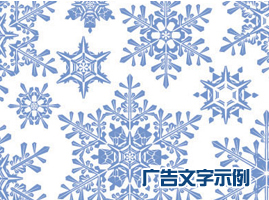Market
Conference

Vale formula sees up to 35pc rise in iron ore price
BRAZILIAN mining giant Vale is expected to raise iron ore prices by between 30 per cent and 35 per cent in the third quarter of 2010, based on a formula that has already been widely accepted by customers.
The expected increase will push prices for Vale's iron ore fines, a basic product used in steelmaking, to about $US145 a tonne from $US110 in the second quarter, when prices doubled from 2009 levels, further boosting global steel price inflation, said Pedro Galdi, Sao-Paulo based analyst with SLW Corretora.
Yesterday was the last day for calculation of the new ore price for the third quarter, which is based on the average China spot market price for the March-May period, SLW, Barclays Capital and Credit Suisse confirmed.
Spot market prices into China in this period averaged $US160 a tonne, from which freight and other costs need to be subtracted to give the new quarterly price, they said.
"A price hike of about 35 per cent is already expected, based on the sharp increase in the China spot prices in April, which touched $US188 a tonne," Mr Galdi said in a telephone interview.
"The number is acceptable and for most of Vale's clients will be automatic."
Vale confirmed the new price will be introduced "automatically" following the calculation of the quarterly price.
"In June we'll be implementing the new prices, which are already 100 per cent negotiated with clients; there'll be no further negotiation," a Vale spokeswoman said.
The basic price adopted under the formula is for ore with a 62 per cent iron content, subject to quality differentials for iron content levels, she added.
"Everyone knows how to calculate the price with this system; it's really transparent," the spokeswoman said.
Steel prices will need to rise to absorb part of the new iron ore prices, along with increases in coal prices, Mr Galdi said.
Quarterly, or "index," prices for the steelmaking raw material were adopted in the second quarter of 2010, replacing the 40-year old "benchmark" system of annual price contracts, which started to fall apart in 2008 amid the global economic crisis.
In 2009, major Chinese steelmakers refused to settle "benchmark" iron ore prices after seven straight years of increases, causing prices to slide as steelmaking production and demand slumped worldwide.
Credit Suisse analyst Ivan Fadel, based in Sao Paulo, said the basic price for iron ore sales into Asia in July-September may work out at about $US142 a tonne before freight costs, subject to variations according to ore quality.
India's largest iron ore producer, NMDC, announced it has doubled prices to Japanese and South Korean steelmaking customers, also setting sales contracts on a quarterly basis, Credit Suisse said in a report Monday.
A 35 per cent price increase in iron ore would have a "direct" impact on Brazilian flat steel products prices, which may rise up to 10 per cent in early July as a result, according to Christiano da Cunha Freire, chief executive of Frefer Metal Plus, a Sao Paulo-based steel distributor.
"This will impact inflation, as up to 30 per cent of the cost of automobiles is steel," Mr da Cunha Freire said in a telephone interview. Prices of flat steel, used in production of cars and washing machines, already rose by some 15 per cent in April, he said.
According to SLW's Mr Galdi, the higher iron ore prices may affect Brazil's IGPM wholesale inflation index. But, as Brazil is a major ore exporter, the price hike will be positive for the country's trade balance, he added.
Flavia Ferreira, Sao Paulo-based spokeswoman for Brazil's third-biggest steelmaker, Companhia Siderurgica Nacional, confirmed that the iron ore price increase will lead to a rise steel prices, but without confirming by how much.
Sourced from www.theaustralian.com.au
Tianjin Over World Non Coke Iron Making Technical Consultancy Co.,Ltd. All Rights Reserved
Tel.:+86-22-24410619 Fax:+86-22-24410619
TJ ICP 1100023 Email:info@driinfo.com